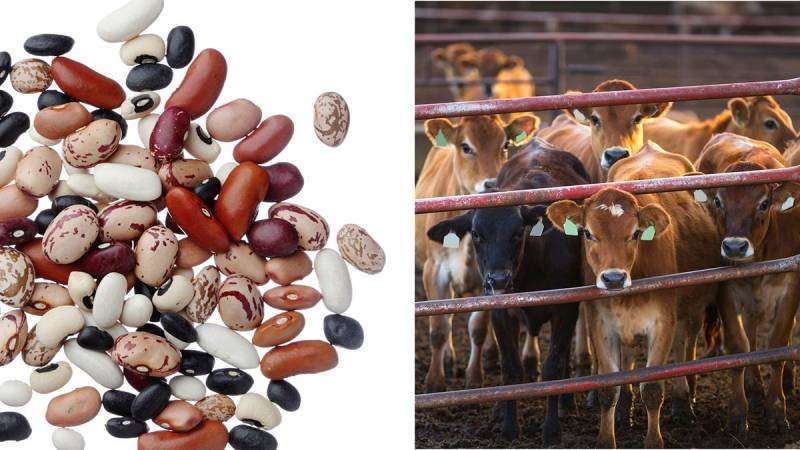A team of researchers from four American universities says the key to reducing harmful greenhouse gases (GHG) in the short term is more likely to be found on the dinner plate than at the gas pump.
The team, headed by Loma Linda University (LLU) researcher Helen Harwatt, PhD, suggests that one simple change in American eating habits would have a large impact on the environment: if Americans would eat beans instead of beef, the United States would immediately realize approximately 50 to 75 percent of its GHG reduction targets for the year 2020.
The researchers explained that beef cattle are the most GHG-intensive food to produce and that the production of legumes (beans, peas, etc.) results in one-fortieth the amount of GHGs as beef.
“Given the novelty, we would expect that the study will be useful in demonstrating just how much of an impact changes in food production can make and increase the utility of such options in climate-change policy,” Harwatt said.
In a 10-page paper released May 12, Harwatt and her colleagues noted that dietary alteration for climate change mitigation is currently a hot topic among policymakers, academics and members of society at large. The paper, titled “Substituting beans for beef as a contribution towards U.S. climate change targets,” can be found online.
In addition to reducing GHG, Harwatt and her team — which included Joan Sabate, MD, DrPH; Gidon Eshel, PhD; the late Sam Soret, PhD; and William Ripple, PhD — concluded that shifting from animal-sourced to plant-sourced foods could help avert global temperature rise.
Sabate, who serves as executive director of the Center for Nutrition, Healthy Lifestyle and Disease Prevention at LLU School of Public Health, said the findings are substantial.
“The nation could achieve more than half of its GHG reduction goals without imposing any new standards on automobiles or manufacturing,” Sabate said.
The study, which was conducted while Harwatt was an environmental nutrition research fellow at Loma Linda University, also found that beef production is an inefficient use of agricultural land. Substituting beans for beef would free up 42 percent of U.S. cropland currently under cultivation — a total of 1.65 million square kilometers or more than 400 million square acres, which is approximately 1.6 times the size of the state of California.
Harwatt applauds the fact that more than a third of American consumers are currently purchasing meat analogs: plant-based products that resemble animal foods in taste and texture. She says the trend suggests that animal-sourced meat is no longer a necessity.
“Given the scale of greenhouse gas reductions needed to avoid the worst impacts of climate change, are we prepared to eat beef analogs that look and taste like beef, but have a much lower climate impact?” she asks. “It looks like we’ll need to do this. The scale of the reductions in greenhouse gas emissions needed doesn’t allow us the luxury of ‘business as usual’ eating patterns.”

SalvadoreGreenTea on May 24th, 2017 at 12:32 UTC »
What about all the increases in methane production from people eating all those beans? CHECKMATE VEGITARIANS!
kittensnatcher on May 24th, 2017 at 12:00 UTC »
What we need is a marketing campaign that creates a demand for a line of products between 100% beef and 100% vegetarian. A 50/50 burger if you will. You'll never sell vegetarianism to most people, but you can cut their consumption. The campaign that created "organic" labeling was really successful in changing eating habits.
Fast food restaurants have gotten in trouble for sneaking in textured soy protein, but really a lot of people don't care that their Taco Bell meat or Subway chicken contained a small percentage of soy. It was most likely the beef and other meat lobbyist groups who brought this to light. Instead of being considered a 'cheap filler', they need to spin it into a environmental and health benefit.
If a company like Mcdonald's could replace even 5% of their meat with soy or similar it would add up.
Pasterjohn on May 24th, 2017 at 10:32 UTC »
Compromise: Beef and beans together. Maybe with some salsa and guacamole.